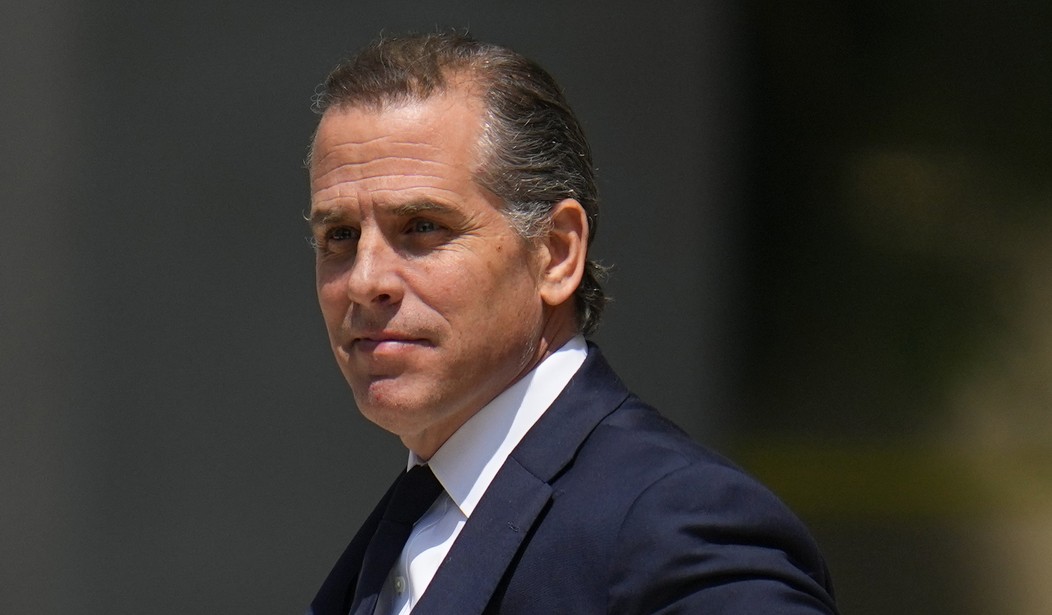Under a plea deal that fell apart last July, Hunter Biden would have spent no time behind bars after admitting to illegally buying a gun and willfully failing to pay his income taxes. Now that Biden is forcing the government to prove its charges in court, he faces up to 42 years in federal prison.
The stark contrast between the punishment that special counsel David Weiss deemed appropriate in July and the punishment that Biden could receive after going to trial reinforces Republican complaints that the president's son initially benefited from political favoritism. But it also illustrates the enormous power that prosecutors wield to coerce guilty pleas, which is so daunting that the Sixth Amendment right to trial by jury has become more theoretical than real.
In June, Weiss announced that Biden would plead guilty to two misdemeanors involving his 2017 and 2018 taxes. In exchange, prosecutors would recommend probation and drop a felony gun charge after Biden successfully completed a two-year pretrial diversion program.
That deal disintegrated after a federal judge questioned some of its provisions, including an ambiguous promise of immunity from future prosecution. It was replaced by two indictments that multiplied the charges against Biden.
Biden, who admits that he was a crack cocaine user when he bought a revolver from a Wilmington, Delaware, gun shop in 2018, initially was charged with violating a statute that makes it a felony for "an unlawful user" of "any controlled substance" to receive or possess a firearm. A Sept. 14 indictment added two more felonies based on the same transaction, both of which Biden allegedly committed by falsely denying illegal drug use when he bought the gun.
Recommended
In addition to the two original tax charges, a Dec. 7 indictment includes four more misdemeanors involving late filing or late payment and three felonies: one count of tax evasion and two counts of filing a false return. The felonies are all related to Biden's 2018 taxes, which were also the basis for one of the original misdemeanor charges.
Weiss, in short, has not discovered new crimes so much as recharacterized conduct that he knew about when he backed the agreement that would have allowed Biden to avoid incarceration. And Weiss has done that only because Biden decided that he would exercise his constitutional right to trial.
If Biden is convicted, his sentences are apt to be substantially shorter than the statutory maximums. He nevertheless could pay a heavy penalty for declining to plead guilty, perhaps amounting to several years behind bars.
Biden is hardly unusual in that respect. According to a 2018 analysis by the National Association of Criminal Defense Lawyers, the average sentence for federal defendants who were convicted after trial was more than three times as long as the average sentence for defendants who pleaded guilty to similar crimes.
That "trial penalty" helps explain why, contrary to the impression left by movies and TV shows, criminal cases almost never go to trial. In the United States, nearly 98% of criminal convictions result from guilty pleas, which means the NACDL is not exaggerating when it says the Sixth Amendment right to trial is "on the verge of extinction."
The pressure to plead guilty is so powerful that it can sway even the innocent. "A study of DNA exonerations conducted by the Innocence Project found that 11% of exonerated individuals had pleaded guilty," an American Bar Association task force noted in a 2023 report.
You may have trouble sympathizing with Biden, who earned a fortune by trading on his father's name and, according to last week's indictment, "spent millions of dollars on an extravagant lifestyle rather than paying his tax bills." His case nevertheless exemplifies the broad prosecutorial discretion that has all but destroyed the venerable safeguard that Thomas Jefferson called "the only anchor, ever yet imagined by man, by which a government can be held to the principles of its constitution."

























Join the conversation as a VIP Member